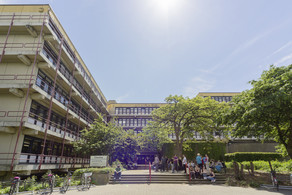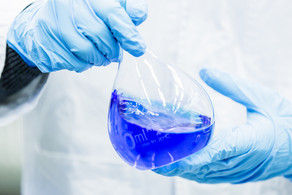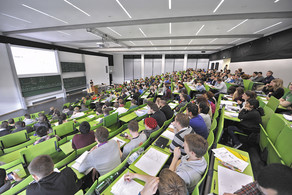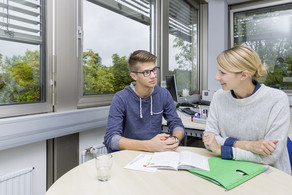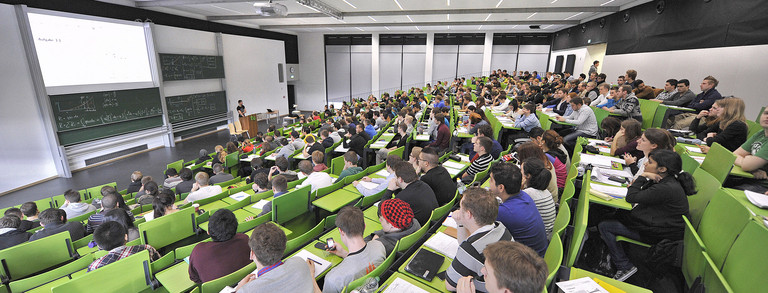Master's degree program
Short profile
The Master's degree program Chemistry leads to the degree Master of Science in 4 semesters and enables students to deepen their knowledge and practical skills in light of the current state of research in order to work independently, e.g. in the fields of research, development, production or analytics. As the courses are mainly held in English, the students learn to master the English scientific terms and use them in an international environment in their professional life.
Content of the degree program
Students can choose between two major fields of study. The major field “Molecules and Materials” contains mainly courses in inorganic and organic chemistry. In the major field “Experiment and Theory”, on the other hand, students select courses in physical/theoretical and industrial chemistry. The assignment of courses in analytical chemistry is regulated in the module handbook. In addition to compulsory elective lectures and laboratory courses, students do a research internship in one subject of the major field. Through the final Master's thesis in the same subject, students demonstrate their ability to work independently in science.
- Examination regulations PDF (165 KB)
- Module Handbook PDF (1 MB)
Further details on our german website
In the Master's degree program, studying abroad for one or two semesters is easily possible. Comparable exams passed successfully abroad can be credited without any problems due to the freedom of choice in the Master's degree program.
Application
The Master's degree program Chemistry is based on the corresponding Bachelor's degree program. Therefore, not only comprehensive theoretical training from the Bachelor's degree program is required, but also a comparable scope of laboratory courses in classical chemistry. Therefore, admission to the Master's degree program is only possible if the Bachelor's degree program is comparable to the B.Sc. degree program Chemistry at TU Dortmund University. It is possible to start the degree program in the winter and in the summer term. International students can find all the information about the application at the web page of our international office.
Information about the application
You can find all the information about the admission to our Master's degree program in section 4 of the examination regulations. There you can also find information about the language requirements.

